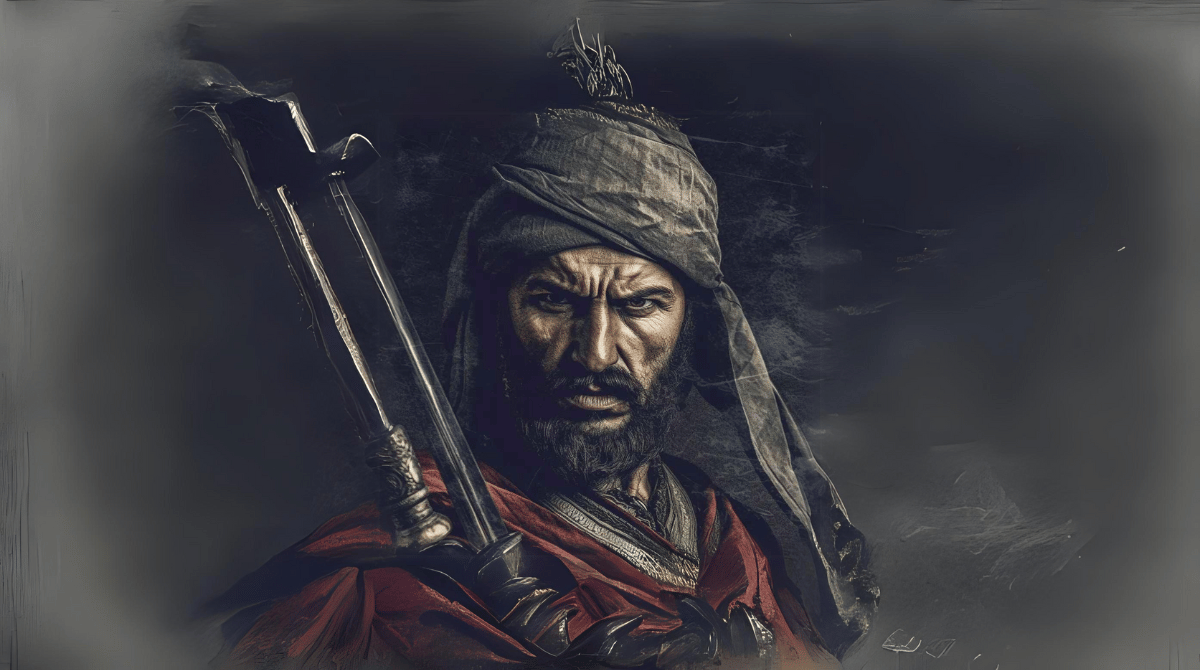Ottoman Empire: A Janissary’s Journey from Stojan to Mehmet
In the labyrinth of history, there are tales that echo the complexity and diversity of human experiences. One such story is mine, a tale of transformation and resilience, told through the prism of an institution that marked a significant chapter in the history of the Ottoman Empire: the Janissaries. Born as Stojan, a Christian child in one of the Balkan cities under the rule of the Ottomans, I was taken from my family, indoctrinated into Islam, and raised as a Janissary, an elite warrior serving the Sultan.
My journey offers a lens into the history, evolution, and legacy of the Janissaries, a corps of captured boys turned soldiers who served as the backbone of the Ottoman military might for centuries. In sharing my story, I not only shed light on the intricate workings of the Janissary system but also uncover the broader historical currents that swept across empires and cultures.
Join me as I traverse this path, a reflection on my life in the shadows of empires and the echoes of a past both tumultuous and transformative.
I was born Stojan in the mountainous town of Sarajevo, nestled within the heart of the Balkans. The beauty of its landscape was complemented by the harmonious coexistence of its people. A Christian child, the teachings of the Church formed the fabric of my earliest memories.
In the year 1459, my world turned upside down. Men in strange attire, bearing foreign symbols, invaded our peaceful town. They were soldiers from the powerful Ottoman Empire, who took me away from my parents and my homeland. The journey to the unfamiliar city of Istanbul, a city vibrant and intimidating, was the beginning of a new life.
Upon arrival, I was converted to Islam, indoctrinated into a faith that was not my own, and given a new name, Mehmet. I was part of a group of young Christian boys, now called the Janissaries, a term I’d learn meant “new soldiers”. We were the newest additions to the Sultan’s elite military force.
As a Janissary, I was subjected to rigorous training in the art of warfare. Despite the harsh conditions, a strange sense of fraternity developed among us boys. We were all bound by the same fate, the same nameless fear, the same desperate longing for the homes we’d left behind.
During my teenage years, I witnessed the transformation of the Ottoman Empire into a formidable force, guided by strategic leadership and a fierce military structure, with the Janissaries at its heart. We, the very children taken from our Christian homes, were now the pillars of this Islamic empire. The paradox was not lost on me.
While the empire flourished, so did my proficiency as a soldier. I was no longer the frightened Christian boy named Stojan, but Mehmet, a skilled Janissary. Yet, deep within me, I continued to carry the echoes of my past life.
As the years passed, the life I once knew as Stojan felt more like a distant dream. The memories of my parents and my hometown were slowly fading away, replaced by the constant battle cries, the endless drills, and the hauntingly beautiful call to prayer.
I yearned for the comfort of my past, but was also captivated by the allure of my present. In my heart, I was torn between the Christian teachings of my childhood and the Islamic faith I now practiced. I was both Stojan and Mehmet, each struggling for dominance, each shaping the other.
Being a Janissary meant being the backbone of the Ottoman military force, the protector of the empire, and the symbol of the Sultan’s power. But it also meant living a life of duality – one where my past was in constant battle with my present, where the faith of my childhood clashed with the religion I was made to adopt.
As I reflect on my journey, I realize that the essence of my story isn’t just about the transformation from Stojan to Mehmet, or from a Christian child to an Islamic warrior. It is about the resilience of the human spirit, its capacity to adapt, and its innate desire to survive, even in the most challenging circumstances.
The tale of the Janissaries, therefore, is more than just a chapter in the history of the Ottoman Empire. It is a testament to the complexity of human identity, the transformative power of faith, and the enduring struggle between one’s past and present.
My life as a Janissary began in the middle of the 15th century, following a tradition that was established nearly a century earlier. Sultan Murad I, the ruler of the Ottoman Empire, initiated the ‘devshirme‘ (blood tax) system around 1365, aimed at recruiting young Christian boys for his army. As a result, Janissaries, children taken from their homes, became a significant part of the Ottoman military, their numbers swelling to approximately 40,000 by the 16th century during the reign of Suleiman the Magnificent.
This was our heyday. As Janissaries, we constituted the Sultan’s household troops, his bodyguards, and the empire’s first standing infantry. Our roles weren’t restricted to military pursuits; we also held administrative posts and were considered key players in the empire’s bureaucratic machinery.
One peculiarity of the Janissary system was its self-perpetuation. While we were prohibited from passing on our roles to our sons, recruitment through the devshirme system ensured a constant replenishment of our ranks.
Over time, however, these rules were relaxed, and by the 17th century, it became increasingly common for the sons of Janissaries to join our ranks. This bred nepotism and corruption, and was a stark departure from the principles of merit and loyalty that had once defined us.
We expanded the Ottoman Empire’s boundaries far and wide, as far as the gates of Vienna to the north, and the Persian Gulf to the east. Our successes in battle were numerous, and we were highly regarded within the empire. We served the Sultan directly, and were stationed in close proximity to him, often within his palace in Istanbul.
Our Janissary uniforms prominently featured the unique ‘kasikci’ or ‘spoon-holder’ symbol. It was more than a mere decoration; this emblem bore a deep-rooted history and relevance intrinsically linked to our Janissary identity.
The Janissaries were not merely an army; we were also a brotherhood, a tightly-knit community. We lived together in communal barracks known as ‘ortas‘, each headed by a ‘çorbaci’, a title which roughly translates to ‘soup server’. This title reflects the communal and egalitarian nature of our corps. We dined together from the same pot, sharing the same bread and soup, regardless of our origins or rank.
In recognition of this symbol of unity and fraternity, the Janissaries began wearing spoon symbols on their headgear. It emerged as a sign of our collective identity, embodying our unity, shared purpose, and common life. The use of the spoon symbol began sometime in the 15th century and continued till the dissolution of the corps in the 19th century.
Over time, the spoon symbol evolved to signify more than just our communal living; it became a powerful emblem of our distinctive identity within the Ottoman military structure. It served as a constant reminder of our beginnings, our shared experiences, and the brotherhood that bound us together.
Looking back, the spoon symbol on our helmets represents one of the most enduring and distinct aspects of our Janissary identity. It encapsulates our journey from being captured boys to becoming an elite force within the Ottoman Empire, bound by a unique code of brotherhood and shared duty. It serves as a timeless reminder of our unique history and the deep bonds we formed during our time as Janissaries.

